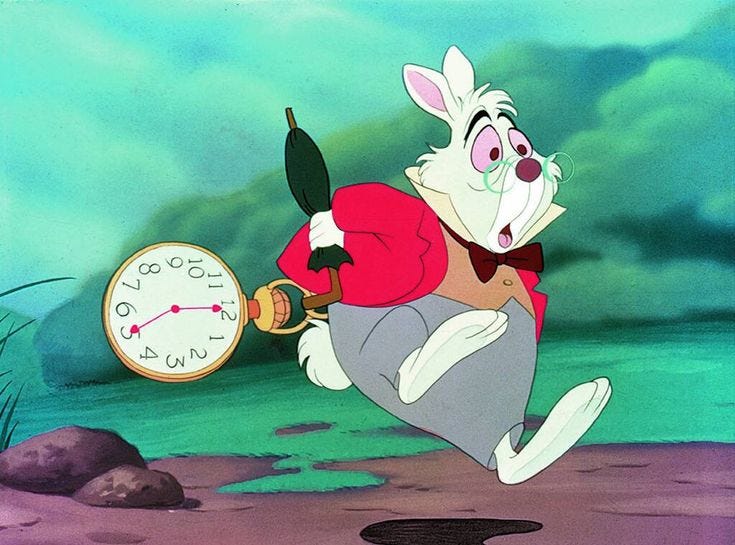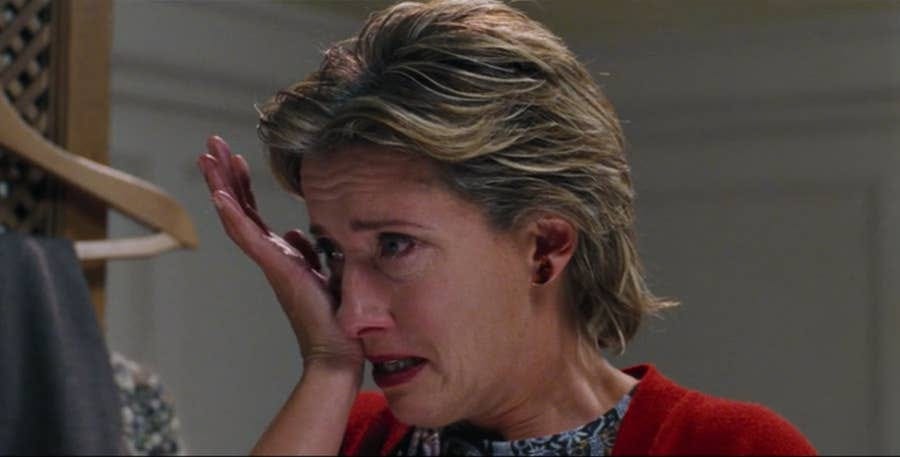What ACTUALLY nobody tells you about break ups
And a future note to myself for the next time I am supporting someone who is going through one.
I have been going through my very first break up this past month. In this time of pain beyond my wildest imagination (and, trust I imagined plenty), one thing I have done is googled. And googled. And googled again. Every time I have a thought that feels too overwhelming to process or am not able to confide in friends (who are the reason I have made it through thus far), the search bar has been my drug-like coping mechanism. As such, I have become quite familiar with what the internet has to offer in terms of advice when it comes to dealing with a break up. As well as that, while I am surrounded by love and support in this time, there are some in my life who fail to rise to the occasion when it comes to holding space for where I am right now. This is especially the case for some of the older adults in my life. As such, I thought I would write this article here to share some truth from the trenches that I was not prepared for and hold them here as a way to remember when I need to care for someone going through a break up. I also hope that it is found by those who are going through one and are struggling to find comfort in what they are being offered by others.
Disclaimer: This list is obviously based on my experience. My relationship was a very healthy one and me and my former partner have no ill-will towards each other and have not wronged each other in any way. As such, if you are dealing with the end of a toxic or abusive relationship, this list may vary, but I still hope the overall insights are valuable.
Grief is the correct response.
You are not reacting wrong by being in pain and by expressing that openly. You are not doing anything wrong by being sad, angry or any other emotion. Advice both on and offline is focused on ‘‘moving on’’, but the reality is that it takes a while to even be in a state to think of that and it comes and goes day by day (I, for example, am very much not there yet). It hurts more than many other seemingly more extraordinary things that can happen, for example I am pretty sure being crushed by a bus at least goes away quickly. I think socially there is a bit of an expectation that we should, yes, feel our pain, but in a way that does not impose on others, even those who are providing us with support. That is not true. You should communicate how you are feeling and not lash out at others because of your pain, but you are allowed to grief openly. You don’t have to say you are okay to make others comfortable. I have found it helpful to say that I am feeling more or less stable on the given day and then elaborate if prompted.
In terms of support, telling people to look towards positives in the future or that heartbreak is a part of life or, god forbid, to dismiss their pain as ‘‘dramatic’’ completely invalidates your support of that person. You are completely missing the point of what they are feeling instead of helping. A valuable bit of help that addresses this, however, is simply the act of being there and witnessing the pain. One of the less talked about parts of romantic love that I have found particularly painful to mourn has been the loss of a witness. Knowing that someone was there to witness your pain or your joy and that you are not alone in them. To me, the most helpful thing my support system has provided me is to stand witness of me during this time since this has been one of the hardest things to loose.
You are not on a schedule.

This is something I was actually told by three of my friends that I had not heard before and it broke a lot of my ideas about what I am supposed to do in the wake of a break up. The truth is you are not supposed to do anything beyond what is necessary for your health and recovery. Pictures on Instagram can sit there unarchived for a few months until you feel ready. Pictures on your camera roll or printed don’t need to be dealt with until you feel ready. I have found it helpful to put things out of sight, but any permanent removal or decision is not required on any sort of schedule. You don’t owe clarity to the public about your situation (I think social media statements have really ruined this concept for us). Furthermore, what you end up doing with these things is entirely up to you. You do not need to kill all the evidence. Just because your relationship as it was has ended, does not mean it had no value and that you are no longer allowed to keep the memories that were created.
In terms of support, the most helpful thing that has been provided to me in regards to this has been offers of practical support and knowing that I can have certain residue tasks like these taken off my hands. I have asked a friend if he will eventually (when I am ready) go through my Instagram and archive some posts for me. I had friends help me pack away physical mementos and pictures somewhere where I know where they are for when I decide what to do with them. This has been valuable, because it removes the pressure that I imposed on myself and allows me to focus on my emotional well-being. As such, offering a helping hand with such tasks without implying they need to be done at a certain pace is, I think, the best way to help with this point.
One addendum to this is that, depending on the situation, there may be things that you need to work out with your former partner in the short term that might require you to make decisions that feel hard to make. I have been able to openly communicate with my former partner about those issues and we have come to a pace that has worked for both of us as well as it can. I do think we have a responsibility to do that and do it in a way that is as painless for both as possible, and you should also expect this from your former partner as much as your dynamic allows. Also leaning on your support network in this as well is valuable as you can ask if a decision seems reasonable if you do not feel capable of judging that at any given moment. This has really helped me find my footing when I am feeling very inside of my grief as I have been able to make such decisions with people who care about me, but are able see things outside of my pain and advise me on what to do gently with that pain in mind.
It is true you will, but you don’t have to like it.

Another thing I have struggled with is that I do not find the thought of moving on comforting. I was happy in my relationship, though it had struggles and I have not really been able to find joy in the thought that I will one day love again. My reasons for this are that I am reminded of the relationship I have lost and how I will have to let it go to love someone new. In my case I hope that at least we can maintain a close plutonic friendship at some point, but that is not the same and often I do not find much comfort in that either. As such I know I will move on, but that does not mean I have to like it and not feel the loss of what we had.
I think the best support for this is to not put too much focus on future love until the person feels ready or brings it up. Things come in waves and maybe some days the person is feeling hopeful for future prospects, while other days they are unwilling to cast their mind beyond what they have lost. Listen to them and meet them where they are at. I have also found much comfort in sometimes being reminded of my other achievements at the moment, because I have found some moments of excitement for the future unrelated to what I am going through. Maybe the person has an exciting job opportunity coming up, maybe they are taking a nice trip. I do not think it should be brought up as a reason not to be sad, but if the person starts talking about these things, take interest and listen to them. I have found that being encouraged to talk about what is coming up in my life this way does make me feel some hope and excitement.
Your (their) ex is not always the villain.
I have noticed that as a means to support me, people often either gently criticise or try to dismiss my former partner. This is the right thing to do in many cases, because often people blame themselves for the break up or fail to see the flaws in their ex that lead to the break up. I, however, have felt that situation tries to introduce a level of dichotomy, which I am not comfortable with since I do not blame my former partner for our break up and, though it is the most painful thing I have ever gone through, I do not want to feel resentful. I do not blame myself either, though that was also a phase I went through, as I know and understand that I was a good partner, despite my inner struggles that manifested in the relationship. As such, having to clear people away from this line a reasoning, which I know comes from a place of caring for me, has been a difficult process. What I have been trying to do is focus on the constructive parts of their statements and not the rest.
I think it is far more effective to focus on the person you care about than the other person even if that person did something very wrong. The fact is, the person you care about sees this person in a very different light from you (they love them) and they may not always be in a state to examine things objectively, especially in cases where the break up was amiable and not the result of betrayal and/or abuse. Maintaining a neutral, listening ear when people talk about their former partner may give them a better space to work out their thoughts without also feeling defensive over the person they still love.
All the horsemen come to the apocalypse.
I have found that going through a big life-change, be that the beginning or end of an important relationship, all your ongoing problems experience a flair up. As such while dealing with the break up, you also ponder your other on going problems and how they have effected you in the context of the relationship and in general. I have also been made to face how I treat and speak to myself in a way that has really made me gain a new perspective that I hope to hold on to going forward. Importantly, this is not something to blame ourselves for, though I did feel that way for a while and could not help wondering ‘‘what if’’ I had been able to address things more easily. The truth is that I, and you, probably did the best we could with what we had in and around us as the time. Furthermore, in the case where your relationship was a healthy one and your former partner was a person you could rely on in your life, you may find that you gain a lot of perspective about others in your life, especially those with whom you may not have a particularly mutual or healthy relation.
In supporting this part of someone’s break up, I think it is important to make sure you are not the only person who is making that effort since having to listen to all of someone’s issues could become overwhelming as well and that boundary is very reasonable. Personally, having a group of people to rely on and choosing which one to talk to depending on the situation, both theirs and mine, has been valuable as it has provided me with many perspectives and much comfort in knowing I can lean on many people in this time and spread the emotional load.
The stages are a circle.
This is a point that is a bit of a cliche, but this was the first time I really experienced it in my life, so I wanted to mention it. The stages of grief are a circle. Just because you have accepted the situation does not mean you are through all the other emotions. It changes day by day without much rationality at first, so it is not reasonable to expect it to follow a linear progression. The way this was described to me by a friend was as ‘‘moments of clarity’’ in the over all emotional storm. You have moments when you are able to see things in a constructive perspective and even feel some peace, but that does not mean you are no longer entitled to the moments of overwhelming emotion and irrational thought.
To support this, once again I have found the most value at being met where I am at and also being able to lean on multiple people as to avoid taking someone else on the cyclical roller coaster with me completely. Not being expected to stay on one course at this moment has really helped me process everything as it comes.
Conclusion.
Break ups are a personal experience and I think the extent of the pain makes some people forget what it feels like after a time. As such, when faced with supporting someone going through one, they are not able to remember these feelings well enough to support effectively. They generalise and try to stir away from the grief or even don’t fully acknowledge the legitimacy of the grief, which only makes those of us going through this feel even worse. The internet, for its part, often mirrors this by focusing on moving on with less acknowledgement of the place between the break up and moving forward.
I have been reminded, more intensely than ever before, that your friends or the family you have chosen for yourself are everything. There is a level of understanding, empathy and tolerance I have found in my friends that I think differs from what your related family offer as those bonds are made by choice and through experiences rather than obligation and circumstance. I will also say that you learn a lot about the quality of your family attachments as you see where there is a bond and an understanding beyond familial proximity and those are very valuable. Additionally, the self care aspect of the break ups part of the internet does hold some value as it gets you thinking about how to hold yourself gently in this time and make yourself feel better on the inside through caring for the body and mind.
Ultimately, the balance between grief and picking yourself up is ours to navigate and the best support we can receive is a good safety net while we are up there.










Very beautifully written!